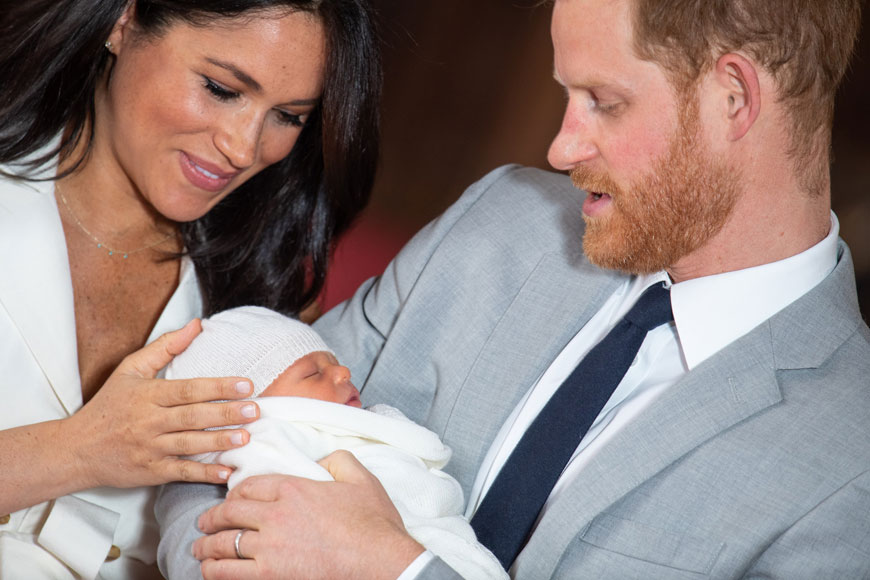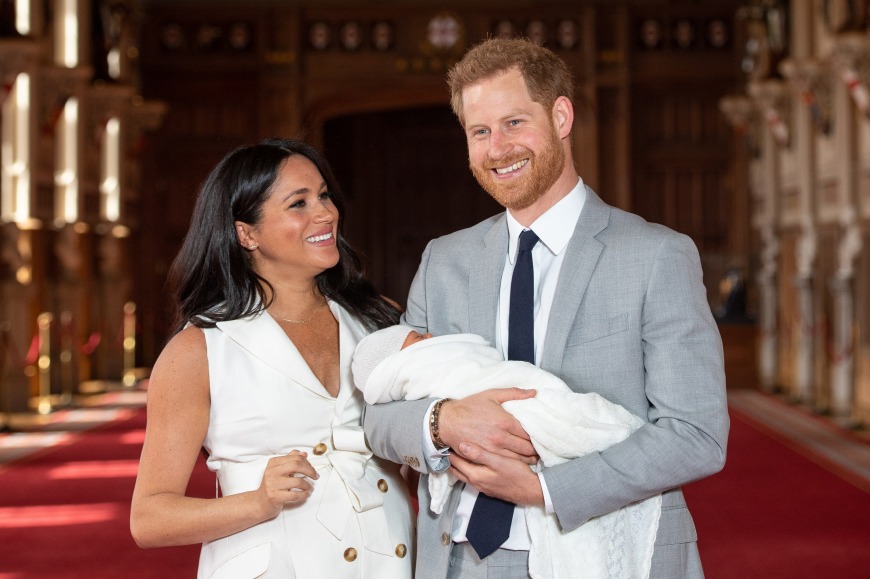Here’s How New Parents Can Get More Sleep, According to A Hollywood Nanny
Nanny to the stars Connie Simpson, who’s helped celebs including George Clooney and Jessica Alba, shares tips on how new parents can get more shut-eye.
23 May 2019
Maebelle

All Credits: PA
After announcing his son Archie’s birth, Prince Harry happily confessed away from the cameras, “I’ve had about two hours’ sleep”. The next day, Prince William – an experienced father of three – jokingly welcomed his brother to the ‘sleep deprivation society that is parenting’.
But now Archie is two weeks old and, if they are anything like most new parents, Harry and the Duchess of Sussex are probably no longer seeing the funny side (of anything really) – because lack of sleep is one of the hardest things about having a new baby.

Here are Nanny Connie’s tips for new mums to keep sleep deprivation at bay:
1. Sleep when baby sleeps
Nanny Connie says: “I know naps are a foreign concept to many mums but, especially with a new baby, they’re vital. Even if you can’t sleep, simply lying down while the baby sleeps can be very restorative.”
Most parents who manage to get their baby down to sleep still don’t go to sleep themselves, says Nanny Connie. “The reason they aren’t sleeping is because they’re hovering – constantly checking on their little one while they’re sleeping.” It’s hard not to do this, but one way to help you relax is by harnessing the power of technology.
“As a new mum, it’s normal to want to watch every little whimper, breath and movement in order to know everything is okay,” says Nanny Connie. “What didn’t exist when I was a new mum (which I wish had) is the multitude of products out there that can do this for you.” Baby tech includes an Owlet Smart Sock which notifies parents if their baby’s heart rate or oxygen levels fall outside preset zones; baby monitors that check baby’s sleep, breathing rate, skin temperature and activity level; and smart bassinets, which rock automatically and even play white noise to soothe baby to sleep.
4. Set the mood
Setting the mood is also key to getting babies to sleep. This starts with soft music and low lighting, so baby learns soothing music and dim lights mean it’s sleep time. Such peaceful light and sounds can also help relax parents and encourage them to nod off too.
Routine is vital for babies, and Nanny Connie says whether it’s nap time or night-time, just before you put baby down make sure they have a good bottle, clean nappy and good swaddle. “A good burp is also a must – a gassy baby will not make for a sleepy baby,” she stresses, also recommending a warm bath, a massage, and a story. “Babies are extremely smart and love routines. You have to train your baby, so that each step eventually leads to slumber. I can’t stress enough that this process needs to start from day one,” she adds.
6. Track your sleep
To maintain a reasonable idea of how much sleep both you and your baby are managing, keep a sleep journal for the first couple of months. “This will help you track the amount of sleep you’re actually getting, and should be used as a guide to make sure there’s a steady increase as time passes,” says Nanny Connie.
- Tags:
- royal baby
- parenting
- sleep
- babies

























.png?itok=SvZPqMHH)




.png?itok=uB2ieOR7)












